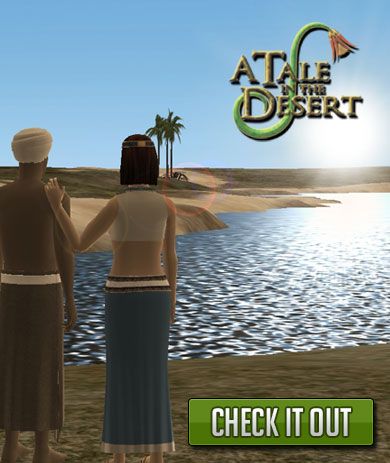

Instead, a variety of social activities provide the basis of interaction in the game. The game is unusual among MMORPGs in that it lacks combat. The empirical case of tourism in Israel's Southern Negev illustrates the impact of the country's integration into the EU’s external aviation policy on the tourism sector as well as the strategies of institutional entrepreneurs to use this transnational window of institutional opportunity to promote diverse patterns of institutional change based on multiple imaginaries. A Tale in the Desert 3 is a Massive Multiplayer Online Roleplaying Game (MMORPG) set in ancient Egypt. 7A glimpse into the origins of the petroleum era in Saudi Arabia, Saudi Aramcos plans for the future, and what it is like to live and work in the kingdom. In this contested process, institutional entrepreneurs draw on imaginaries, narratives, and visions, and actively shape them. Lucky No.7: A Tale of Oil in the Saudi Arabian Desert Lucky No. A Tale in the Desert has a legal system a controlled variant on Nomic which is generally restricted by what the developers can code, as well as the nature of such a system. Building on literature on institutional entrepreneurship, cultural political economy, and actor-network theory, the paper argues that EU alignment opens a transnational window of institutional opportunity for agents to shape regional development through the translation of institutional change both between different spatial scales and between different components of institutional contexts.

Policy alignment consists of changes in the supranational institutional context that are translated into diverse changes in the regional institutional context. In countries in the EU’s Eastern and Southern neighborhood, processes of alignment and mutual market liberalization shape the supranational conditions for regional development but do so in variegated ways. Institutional change in regional economies is affected by multiscalar developments such as alignment with the EU and its markets.


 0 kommentar(er)
0 kommentar(er)
